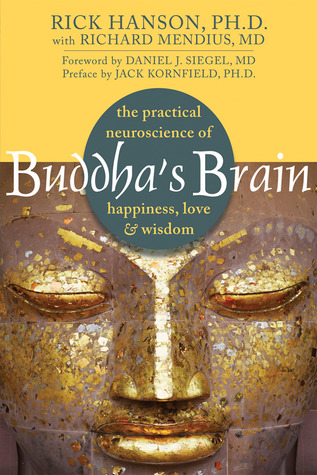More on this book
Community
Kindle Notes & Highlights
by
Rick Hanson
Read between
June 26 - July 4, 2020
It’s sometimes said that the greatest remaining scientific questions are: What caused the Big Bang? What is the grand unified theory that integrates quantum mechanics and general relativity? And what is the relationship between the mind and the brain, especially regarding conscious experience? The last question is up there with the other two because it is as difficult to answer, and as important.
Marian liked this
Truly, you’re here because a lot of stars blew up. Your body is made of stardust.
your brain is built more for avoiding than for approaching. That’s because it’s the negative experiences, not the positive ones, that have generally had the most impact on survival.
When an event is flagged as negative, the hippocampus makes sure it’s stored carefully for future reference. Once burned, twice shy. Your brain is like Velcro for negative experiences and Teflon for positive ones—even though most of your experiences are probably neutral or positive.
People will do more to avoid a loss than to acquire a comparable gain
in relationships, it typically takes about five positive interactions to overcome the effects of a single negative one
For example, imagine speaking from your heart: this may trigger a mini-movie ending in rejection and you feeling bad. But in fact, when you do speak from the heart, doesn’t it typically go pretty well, with you ending up feeling quite good?
Stage one—you’re caught in a second-dart reaction and don’t even realize it: your partner forgets to bring milk home and you complain angrily without seeing that your reaction is over the top. Stage two—you realize you’ve been hijacked by greed or hatred (in the broadest sense), but cannot help yourself: internally you’re squirming, but you can’t stop grumbling bitterly about the milk. Stage three—some aspect of the reaction arises, but you don’t act it out: you feel irritated but remind yourself that your partner does a lot for you already and getting cranky will just make things worse. Stage
...more
“The Great Way is not difficult for those who have no preferences”
Your ill will always harms you, but often it has no effect on the other person; as they say in twelve-step programs: Resentment is when I take poison and wait for you to die.
In the brain, every manifestation of self is impermanent. The self is continually constructed, deconstructed, and constructed again.
The brain strings together heterogenous moments of self-ing and subjectivity into an illusion of homogenous coherence and continuity.


